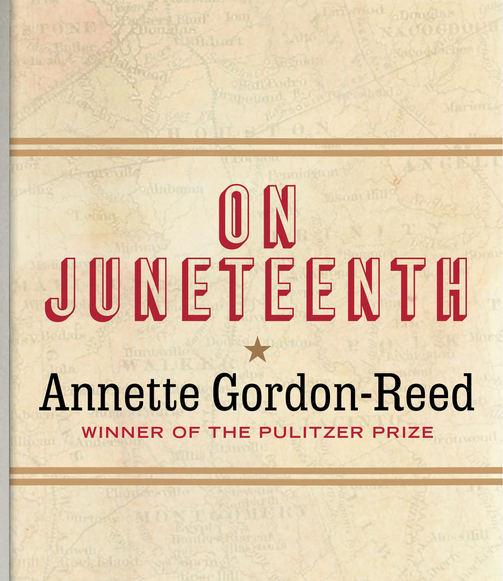“Origin stories matter, for individuals, groups of people, and for nations,” writes Pulitzer Prize-winning historian Annette Gordon-Reed in her new book, On Juneteenth. “They inform our sense of self; telling us what kind of people we believe we are, what kind of nation we believe we live in.”
Gordon-Reed, a Texas native and Harvard Law professor, reshaped Charlottesville’s origin story—and America’s origin story—when she published The Hemingses of Monticello in 2009. The book offered a paradigm-shifting exploration of life for the enslaved Hemings family in Thomas Jefferson’s famous home. In the years since, Gordon-Reed’s work “has guided the Foundation’s efforts to tell the story of the Hemings family and all who lived and labored at Monticello,” said Monticello CEO Leslie Greene Bowman after Gordon-Reed was elected to the Monticello Board of Trustees in 2020.
Gordon-Reed’s latest work, published last month, is a slim volume that combines memoir and academic study to explore the history of Texas, the birthplace of Juneteenth.
Gordon-Reed writes about her time as the lone Black child in an all-white elementary school, and reveals the contradictions within the tales of Texas history she learned in those years. William Barret Travis, a legendary hero of the Alamo, arrived in Texas as a fugitive from the law who had abandoned his wife and children in another state. Stephen F. Austin, “the Father of Texas,” first settled in the state in the hopes of setting up cotton plantations. These and many other Texas origin stories downplay the effect of slavery and ignore the role of native people in the state’s foundation.
In undertaking this work, Gordon-Reed asks readers to examine our own origin stories, and to be honest about what we find. “A supreme risk with myths and legends is that we can easily fall in love with the people who are in them, as if we know them,” she writes.
Thanks in part to scholars like her, the process of interrogating those myths is underway here in Charlottesville and at the University of Virginia. The founding father of our town—the man whose statue still stands in front of City Hall—held other human beings in bondage. Enslaved laborers built the Rotunda and the Lawn, suffering and dying in the process. There’s still plenty of mythology to unlearn.
Yet despite the inaccuracies coursing through the origin stories, Gordon-Reed is proud to be a Texan—not for abstract reasons, but for personal ones. She warmly recalls preparing tamales by hand with her family for a Juneteenth celebration. “Texas is where my mother’s boundless dreams for me took flight,” she writes.
In the book’s final passage, Gordon-Reed expresses a sentiment that can act as guidance to those of us who have lived and grown in this city at the foot of the Blue Ridge Mountains, or those of us who learned at the university before walking down the Lawn in graduation robes.
“About the difficulties of Texas: Love does not require taking an uncritical stance towards the objects of one’s affections,” she writes. “In truth, it often requires the opposite.”
